Some of Donald Trump’s biggest campaign donors and investors, who collectively have hundreds of millions of dollars in financial ties to the US president, are positioned to potentially profit from any American takeover of Greenland, raising even more ethical questions around Trump’s controversial pursuit of the Arctic territory.
The administration is in part aiming to secure rare minerals that are essential for the US tech industry and national security, and to potentially reopen oil and gas exploration: “This is about critical minerals, this is about natural resources,” Trump’s national security adviser, Mike Waltz, recently said.
A Guardian analysis of campaign finance records and corporate filings show US tech moguls who invested in mining companies operating in Greenland, fossil fuel executives and crypto tycoons with their own set of plans for the country collectively gave at least $243m to the president’s 2024 campaign.
Meanwhile institutional investors bankrolling Greenland mining interests also amassed $314m worth of shares in Trump Media, most just ahead of the election.
“There’s a closed loop among these investors, billionaires, Trump and the crypto projects,” said Emily DiVito, a senior adviser for economic policy with the Groundwork Collaborative economic thinktank. Greenland is an example of that in action, she added.
“These donations are investments, and they were made with particular outcomes in mind, and even if they weren’t stated at the time, the money changed hands,” DiVito said.
Vice-President JD Vance recently visited Greenland, which is an autonomous territory of Denmark, in the latest installment of the unfolding dispute between the countries. Trump has vowed to acquire Greenland “one way or another”.
Among those who have invested millions in KoBold Metals, a mining company at the leading edge of Greenland’s “modern gold rush” for rare minerals essential to tech companies, are major Trump donors such as Meta’s Mark Zuckerberg, OpenAI’s Sam Altman, Amazon’s Jeff Bezos and other Silicon Valley moguls.
The top investor in Critical Metals Corp, which has a mining permit in Greenland, is the hedge fund Cantor Fitzgerald, which Trump’s commerce secretary, Howard Lutnick, led until January. Critical Metals’ other top institutional investors include Vanguard, BlackRock, Geode Capital and State Street – companies that have amassed $314m in Trump Media stock, much of it purchased just ahead of the election.
Among the Greenland bids’ loudest supporters are crypto tycoons who poured unparalleled sums of money into 2024 Trump and Republican campaigns while labeling Greenland an “investment frontier” where data centers essential to the US artificial intelligence and crypto currency industries could be built. Some of the same donors also want to establish a largely autonomous libertarian utopian “post state” for the tech elite in Greenland that could be used to practice “terraforming” for a Mars colony.
The group behind the “state”, Praxis, labels its members “optimistic pioneers”, but critics say it is a colonialist operation aimed at plundering wealth and resources from a weak nation still linked to Denmark – its colonial power. Regardless, Praxis is already backed by $525m and includes members of or donors to the Trump administration, such as the PayPal co-founder Ken Howery, who was nominated for ambassador to Denmark.
What’s unfolding in Greenland represents the “circle of grift”, said Robert Weissman, co-president of Public Citizen, a government transparency non-profit.
“Put money into the Trump family bank and the money comes back to you in the form of some government policy,” Weissman said. “That even includes the deployment of the empire in service of libertarians who favor a stateless society.”
The minerals found in Greenland are used in laptops, smartphones, weapons, clean energy technology, electric vehicles and elsewhere across the economy. China so far controls 70% of the rare earth market, and vital trade and military routes run through Greenland’s waters, so the administration portrays its interest as buttressing US security and industry. But Greenlanders are largely opposed to the idea.
Moreover, Greenland is a largely frozen, dark country with very little infrastructure, and it’s prone to rock slides, tsunamis and a shifting ground, said Paul Bierman, a natural resources researcher at the University of Vermont who spent four seasons working there. It is extremely difficult and expensive to extract resources, and the idea that a “gold rush” is possible is “almost completely pie in the sky”, Bierman said.
Mining industry donors and investors
The opposition from Greenlanders and unforgiving terrain has done little to tamp the tech, mining and Trump administration donor enthusiasm for a takeover.
KoBold holds permits to extract cobalt, nickel and platinum, and is now valued at $3bn. Its largest backer is the tech investment firm Andreessen Horowitz – Marc Andreessen, who has assisted the unofficial “department of government efficiency” (Doge), and Ben Horowitz each donated $2.5m to a pro-Donald Trump Super Pac, according to FEC filings, in addition to contributing or helping raise tens of millions of dollars more via other channels.
Bezos, Altman, Zuckerberg and Microsoft’s Bill Gates each donated $1m to Trump’s inauguration. Also among KoBold backers is Patrice Motsepe, a South African mining mogul who generated controversy in 2020 when he told Trump “Africa loves you!”
Lutnick, Trump’s commerce secretary, who gave $5m to the president ahead of the election, just stepped down from his position at Cantor Fitzgerald, but other Trump donors lead the company. A spokesperson pointed to a press release stating that Lutnick had divested and “does not expect any arrangement that involves selling shares on the open market”.
BlackRock, Vanguard and State Street – who are Critical Metals’ other top shareholders – are generally considered to be passive investors who have their fingers in pots across the economy. Still, the three became Trump Media’s top investors when they purchased over $175m worth of stock just ahead of the election, which was widely viewed as an investment in the president. The companies did not respond to a request for comment.
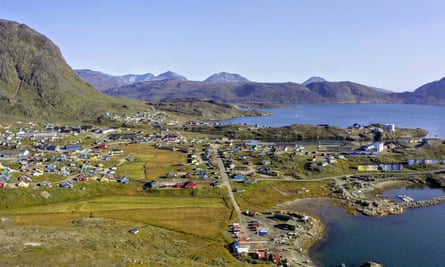
DiVito said Greenland was “littered with the corpses of mineral investors”, but some industry players including consultant Drew Horn, a former senior adviser in the previous Trump administration’s energy department, are regularly in the media cheerleading the administration’s Greenland policy and touting the riches that lie in the nation’s ground.
Horn’s company, GreenMet, leverages his administration relationships to secure political and financial backing for mining companies. GreenMet “advance[s] private sector investments and sound legislative and regulatory action to develop a resilient domestic supply chain”, the company states.
On Fox News, Horn touted the “significant opportunity for US investment in mining and energy production”, but industry observers with no financial stake remain skeptical. In the event that a mining startup doesn’t strike it rich in Greenland, Horn still receives fees for his consulting.
Bierman did not comment on Horn, but said other reports that promote Greenland mining opportunities trace back to the mining industry, not independent or Danish government sources.
“It makes me wonder: is it just self-promotion to get investment money?” Bierman said.
Cryptocurrency industry donors
Ahead of the election, the crypto tycoon Tyler Winklevoss summed up the industry’s mood: Biden had “openly declared war against crypto”, he insisted. He and his twin, Cameron Winklevoss, would each donate $1m to Trump, who would “put an end to the Biden administration’s war on crypto.”
The industry followed suit, fervently backing Trump and the Republicans. The largest crypto Pac, Fairshake, reported spending $195m in the last election cycle, with at least $148m going to the president and Republicans. Top firms reportedly poured another $10m into the president’s inaugural fund.
The crypto industry’s aims in Greenland are slightly more nebulous than mining’s, but it has fixated on the region. In part, the cold climate and easy access to renewable energy is attractive for bitcoin mining operations – Horn said it “literally is the best place in the world for data centers”. The crypto industry startup Lympid just tokenized the first property in Greenland, meaning the real estate asset is converted into coins that people can buy, giving them a stake in the company. Lympid’s co-founder Joao Lages laid out why in revealing terms.
“This isn’t just about real estate; it’s about democratizing access to one of the world’s most unique and promising investment frontiers,” Lages said. “We’re creating a bridge for global investors to participate in the region’s growth story.”
Praxis’s deep roster of tech elite includes folks such as Joe Lonsdale, a venture capitalist who co-founded the AI, drone and weapons producer Palantir and gave millions to Trump, while the company gave another $2.5m. Vance and Trump ally Peter Thiel, and Dryden Brown, a 28-year-old tech entrepreneur who “went to Greenland to try to buy it” several years ago, are also part of the group.
When Trump nominated the Praxis member and PayPal co-founder Howery as ambassador to Denmark, Praxis responded on X: “According to plan.”
Soon after Trump’s announcement, Brown tweeted that Praxis would like to “extract critical resources, terraform the land with advanced technology to make it more habitable, and build a mythical city in the North”.
Failed oil exploration
After 50 years of allowing industry to figure out – largely unsuccessfully – how to efficiently pull oil from Greenland, its government banned exploration in 2021, citing the challenges and climate change.
The Trump administration, which benefited from at least $75m in donations from industry executives ahead of the election, has regularly repeated that oil and gas exploration could be reopened if the US took over Greenland.
But some suspect this is merely an attempt to drum up support for and justify a Greenland takeover. Bierman said drilling was risky, costly and had failed to turn up the huge reserves that some speculate exist.
“The Trump administration is not always grounded in science and reality, and I think this is an example of that,” Bierman said.

 German (DE)
German (DE)  English (US)
English (US)  Spanish (ES)
Spanish (ES)  French (FR)
French (FR)  Hindi (IN)
Hindi (IN)  Italian (IT)
Italian (IT)  Russian (RU)
Russian (RU)  4 weeks ago
4 weeks ago
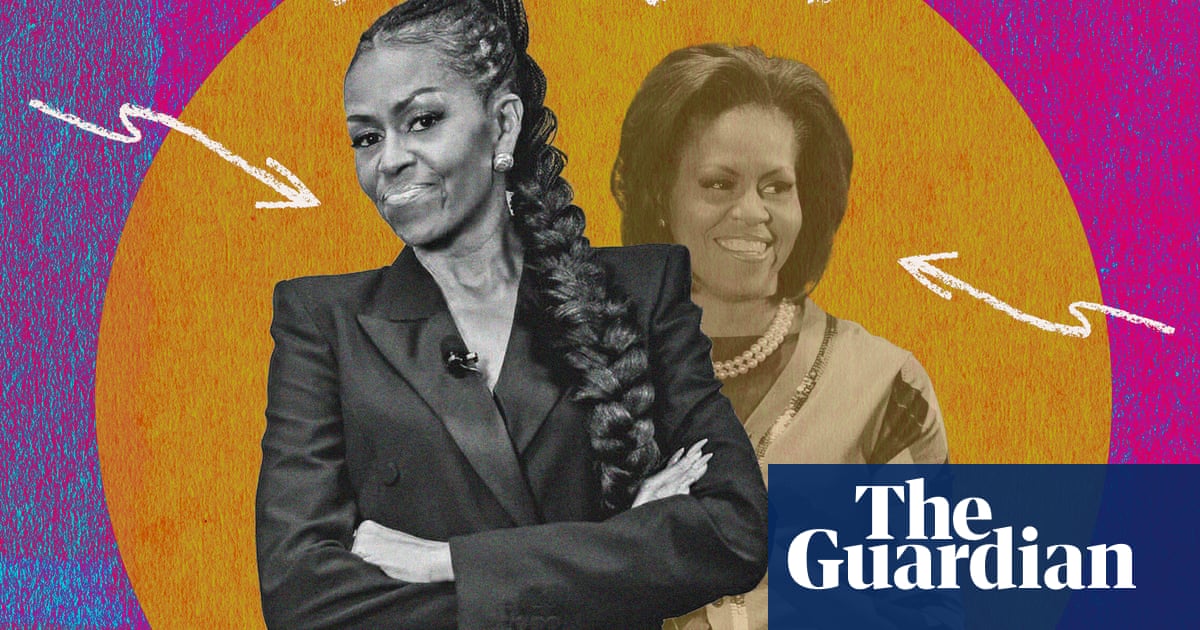

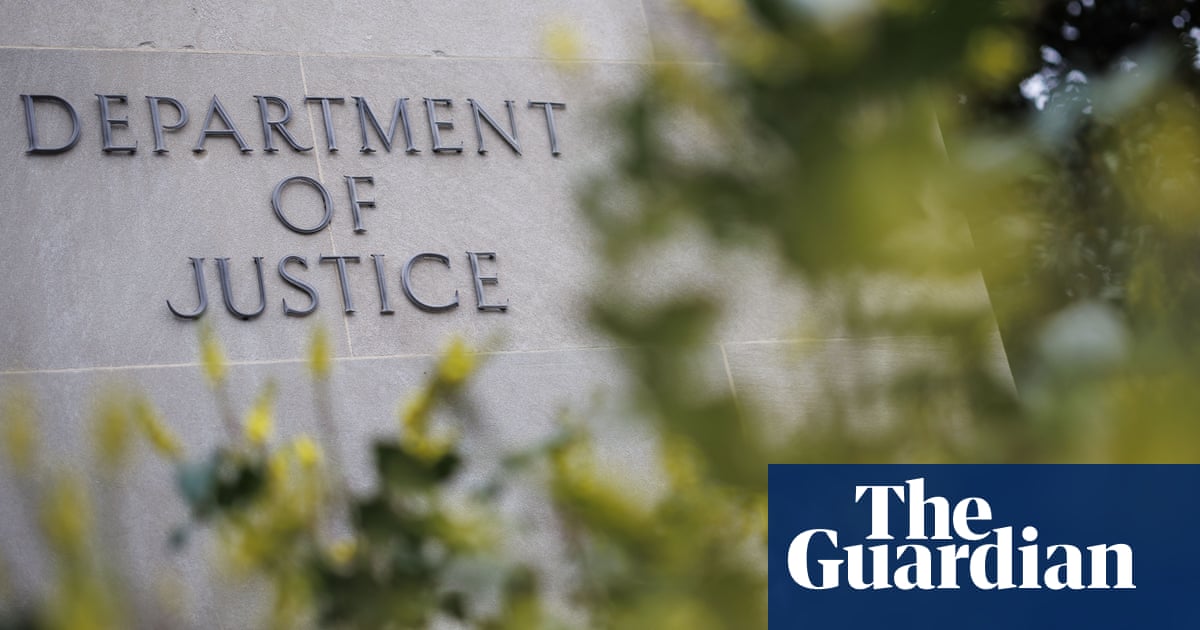
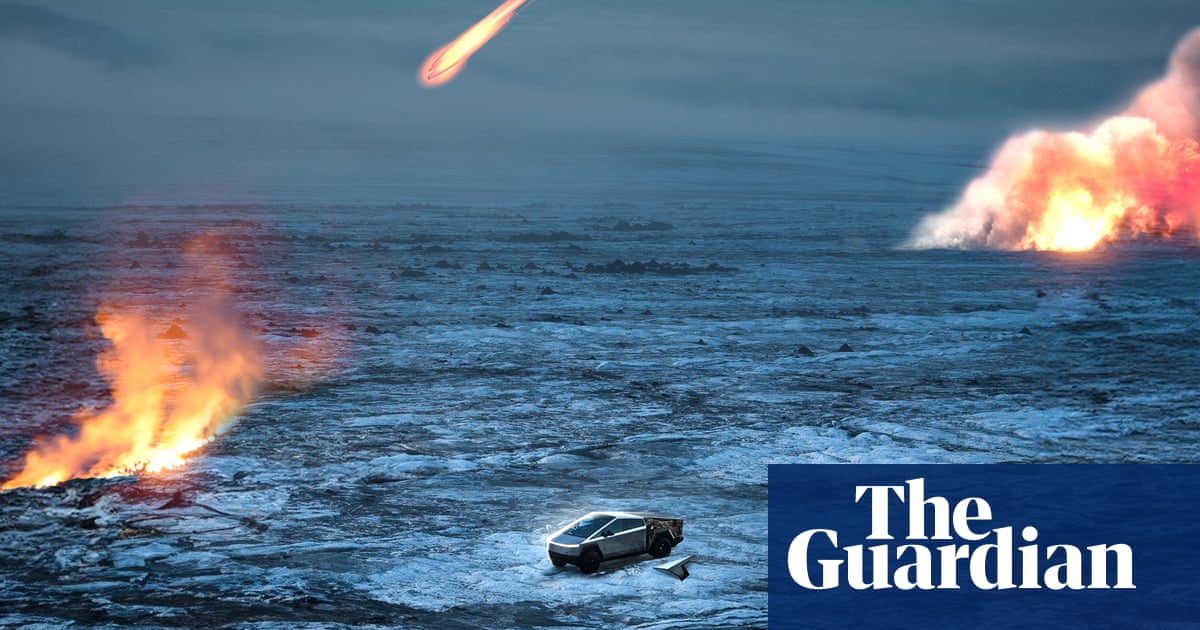




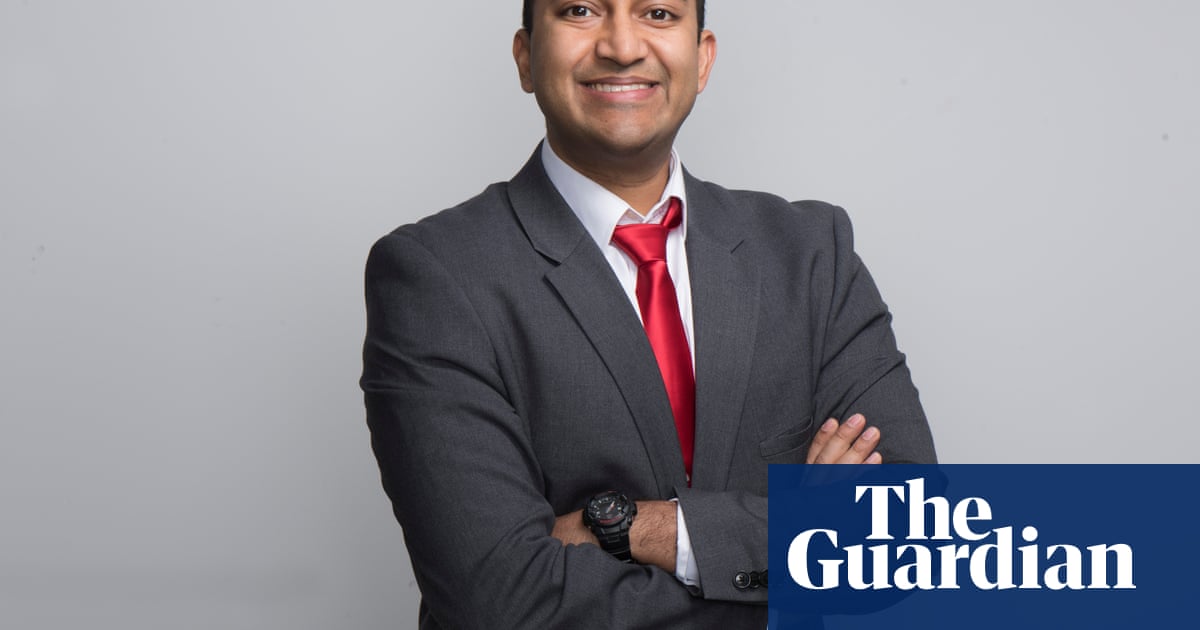













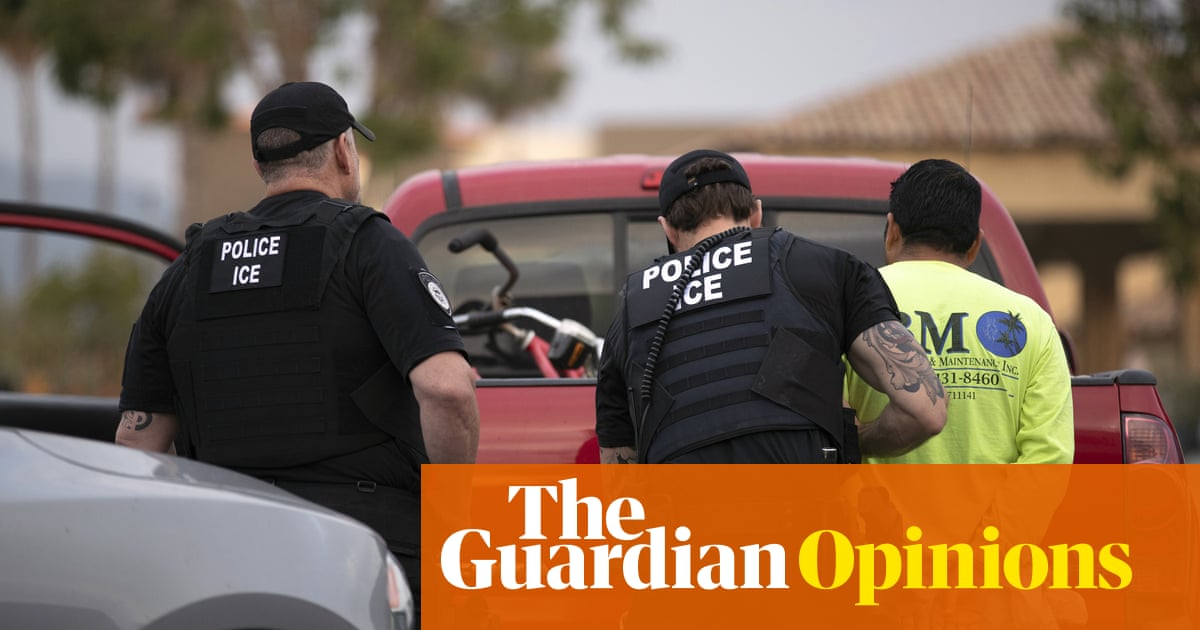

Comments